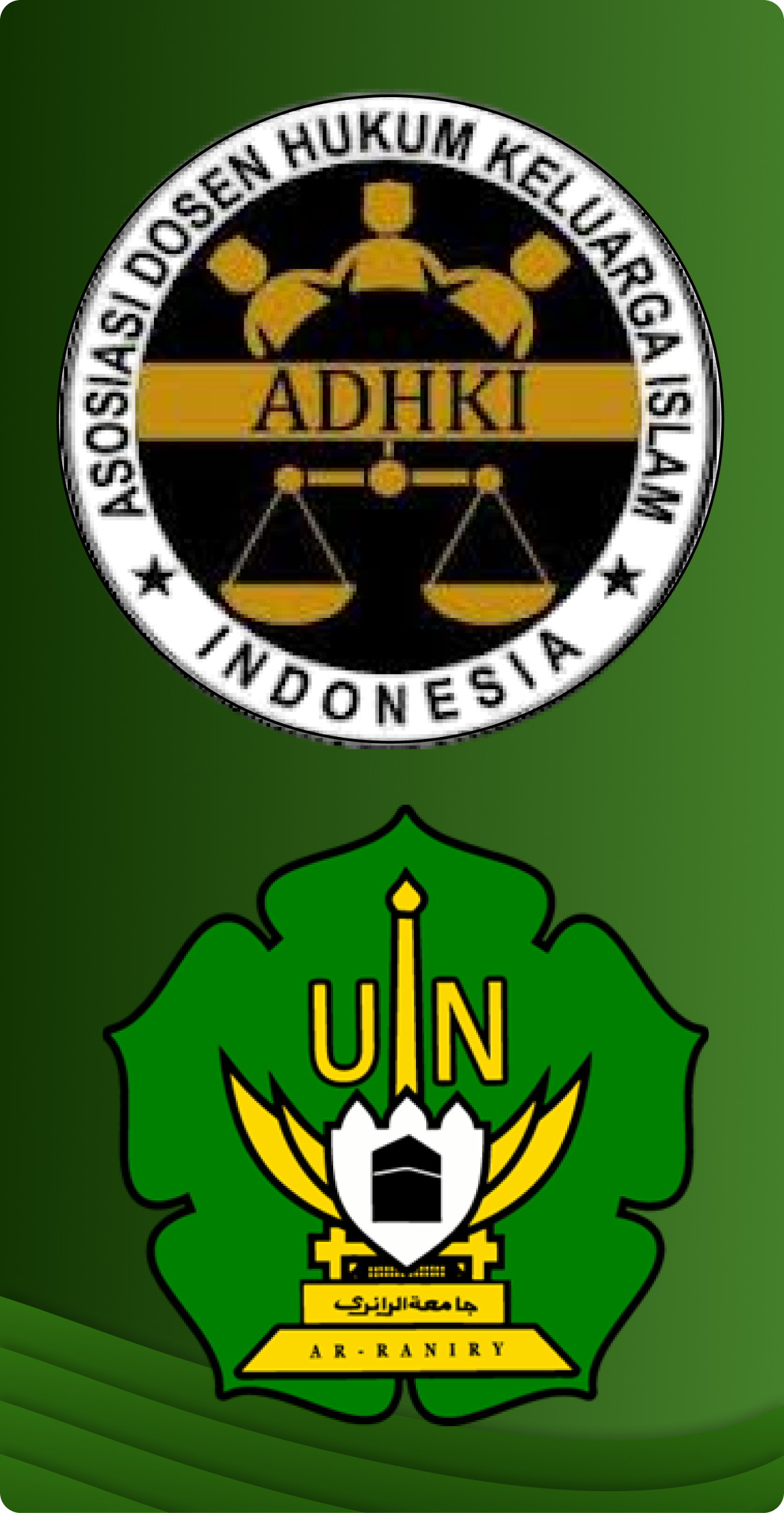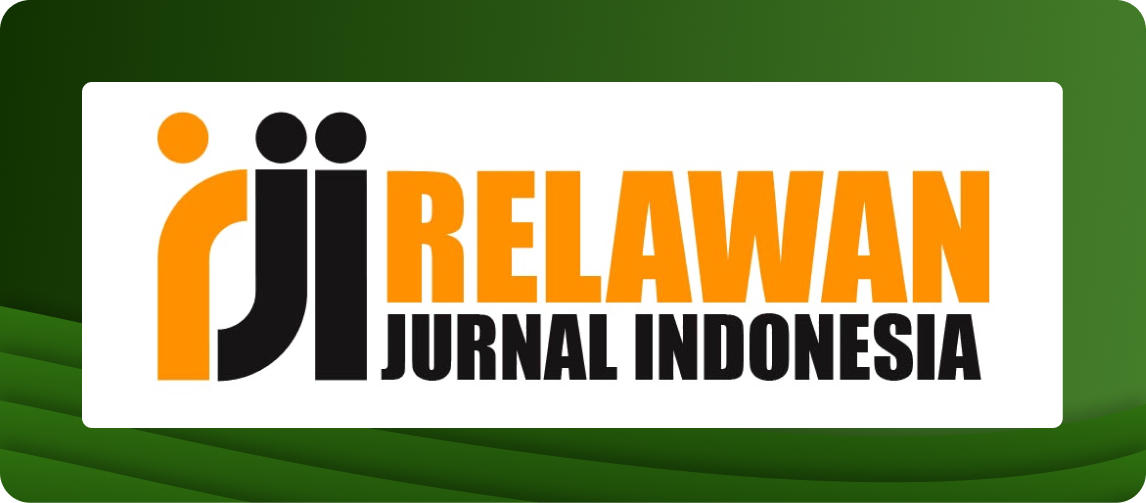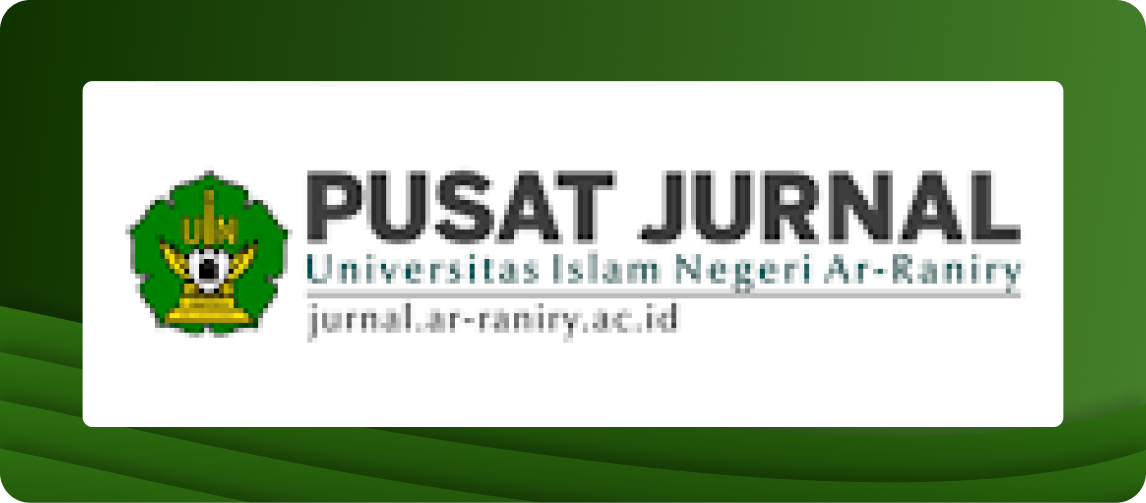Responsive Law of the National Sharia Council of the Indonesian Ulema Council’s Fatwa on Permissibility of Electronic Money
DOI:
https://doi.org/10.22373/j7qh3j69Keywords:
National Sharia Council, the Indonesian Ulema Council, electronic money, Sharia law, financial inclusion, legal certaintyAbstract
This research examines the role of the fatwa of the National Sharia Council of the Indonesian Ulema Council regarding the permissibility of using electronic money as a law responsive to socio-economic phenomena and its impact on the economic practices of Muslim communities in Indonesia. With a descriptive-analytical qualitative approach, this research uses primary data from in-depth interviews and secondary data from official documents to understand the implementation and impact of the fatwa. The research results show that the DSN MUI fatwa provides important legal certainty for Muslims, ensuring that the use of electronic money follows Sharia principles such as the prohibition of usury, gharar, and haram transactions. In addition, this fatwa emphasizes security and transparency in transactions, increasing public trust in the digital financial system and supporting financial inclusion by enabling access to modern financial services for people previously unreachable by conventional banking. In conclusion, the DSN MUI fatwa supported the adaptation of Islamic law to the development of modern financial technology, ensuring the integration of technological innovation in the lives of Muslims without sacrificing their religious values. This research was conducted without conflict of interest, with all processes being independent and objective to ensure scientific integrity.References
Journal And Books
Aji, H M. “The Effects of Subjective Norm and Knowledge about Riba on Intention to Use E-Money in Indonesia.” Journal of Islamic Marketing 12, no. 6 (2020). https://doi.org/10.1108/JIMA-10-2019-0203.
Ali, M. “Being Ignored at Work: Understanding How and When Spiritual Leadership Curbs Workplace Ostracism in the Hospitality Industry.” International Journal of Hospitality Management 91 (2020). https://doi.org/10.1016/j.ijhm.2020.102696.
Ali, Muhamed, and Muaz Agushi. “Eco-Islam: Integrating Islamic Ethics into Environmental Policy for Sustainable Living.” International Journal of Religion 5, no. 9 (June 2, 2024). https://doi.org/10.61707/gq0we205.
Alhusni. “Tinjauan Hukum Islam Tentang Penggunaan Uang Elektronik dan Relevansinya terhadap Lahirnya Fatwa Dewan Syariah Nasional Majelis Ulama Indonesia”. Nurani: Jurnal Kajian syari’ah Dan Masyarakat 19, No. 1 (2019). https://doi.org/10.19109/nurani.v19i1.2864.
Alonso-Monsalve, S. “Convolution on Neural Networks for High-Frequency Trend Prediction of Cryptocurrency Exchange Rates Using Technical Indicators.” Expert Systems with Applications 149 (2020). https://doi.org/10.1016/j.eswa.2020.113250.
Alnizar, Fariz. “The Language of Exclusion: Ideology and Power in the Fatwa of the Majelis Ulama Indonesia on Ahmadiyah”. Journal of Islamic Law 6, no. 1 (2025). https://doi.org/10.24260/jil.v6i1.3338.
Al-Saedi, Karrar, Mostafa Al-Emran, T. Ramayah, and Eimad Abusham. “Developing a General Extended UTAUT Model for M-Payment Adoption.” Technology in Society 62 (August 2020). https://doi.org/10.1016/j.techsoc.2020.101293.
Alshater, Muneer M., Irum Saba, Indri Supriani, and Mustafa Raza Rabbani. “Fintech in Islamic Finance Literature: A Review.” Heliyon 8, no. 9 (September 2022). https://doi.org/10.1016/j.heliyon.2022.e10385.
Amal, M R H. “Reposition of Ta’zīr and Ta’wīḍ on Moral Hazard Behavior in Islamic Banking in Indonesia.” Jurnal Hukum Novelty 13, no. 1 (2022). https://doi.org/10.26555/novelty.v13i1.a21505.
Andaru, Dimas. “Syarat Agar Uang Elektronik Sesuai Syariah.” Hukumonline, 2021.
Anggareni, Erike., Gustika Nurmalia, A. Kumedi Ja'far. “Utilizing the Banking System For Digital Waqf Behavioral Approach of Millennial Muslims”. El-Usrah: Jurnal Hukum Keluarga 7, No. 1 (2024). https://doi.org/10.22373/ujhk.v7i1.22562.
Ashar, A. “The Factors Causing The Emerging Of Transactional Politics In The Local Election In East Kalimantan 2005 From The Perspective Of Siyāsah Syar’iyyah.” Al-’Adalah 17, no. 1 (2020). https://doi.org/10.24042/adalah.v17i1.6633.
Athoillah, Mohamad Anton, Mohd Roslan Mohd Nor, Heri Khoiruddin, and Rohimin Rohimin. “The Historicity of the Economic Verses on Fatwa of DSN-MUI about Sharia Electronic Money.” Jurnal Ilmiah Peuradeun 9, no. 1 (January 30, 2021), https://doi.org/10.26811/peuradeun.v9i1.545.
Aziz, F A. “Menakar Kesyariahan Fintech Syariah Di Indonesia.” Al-Manahij: Jurnal Kajian Hukum Islam 14, no. 1 (2020). https://doi.org/10.24090/mnh.v14i1.3567.
Batubara, Yenni. “Fitur Transaksi Platform Gojek: Paylater Dalam Tinjauan Hukum Islam Dan Fatwa No. 116/DSN-MUI/IIX/2017 Tentang Uang Elektronik Syariah.” El-Mashlahah 11, no. 1 (June 28, 2021). https://doi.org/10.23971/elma.v11i1.2626.
Berutu, A. G. “Pump and Down In Jiwasraya Investigation and the Absence of Islamic Economy Law Principles.” Jurisdictie: Jurnal Hukum Dan Syariah 11, no. 2 (2020). https://doi.org/10.18860/j.v11i2.8624.
Boukis, A. “Effects of Customer Incivility on Frontline Employees and the Moderating Role of Supervisor Leadership Style.” Tourism Management 77 (2020). https://doi.org/10.1016/j.tourman.2019.103997.
DSN MUI. Uang Elektronik Syariah. Fatwa Dewan Syariah Nasional, 2017.
———. Uang Elektronik Syariah. Fatwa Dewan Syariah Nasional, 2017.
Fatarib, Husnul, and Meirison Alizar Sali. “Cryptocurrency and Digital Money in Islamic Law: Is It Legal?” JURISDICTIE 11, no. 2 (January 14, 2021). https://doi.org/10.18860/j.v11i2.8687.
Fauzan, M. “The Implementation of Fatwa of DSN-MUI No. 07/DSN-MUI/IV/2000 on Mudharabah at PT. BNI Syariah, Palu Branch Office Based on Maqasid of Sharia Perspective.” Millah: Journal of Religious Studies 19, no. 1 (2019). https://doi.org/10.20885/millah.vol19.iss1.art4.
Fidhayanti, Dwi, Mohd Shahid Mohd Noh, Ramadhita Ramadhita, and Syabbul Bachri. “Exploring The Legal Landscape of Islamic Fintech in Indonesia: A Comprehensive Analysis of Policies and Regulations.” F1000Research 13 (June 28, 2024). https://doi.org/10.12688/f1000research.143476.2.
Hidayat, A.S. “Sharia and State’s Intervention: Uncertainty Cryptocurrency in Indonesia.” Ahkam: Jurnal Ilmu Syariah 23, no. 1 (2023). https://doi.org/10.15408/ajis.v23i1.31876.
———. “Sharia and State’s Intervention: Uncertainty Cryptocurrency in Indonesia.” Ahkam: Jurnal Ilmu Syariah 23, no. 1 (2023). https://doi.org/10.15408/ajis.v23i1.31876.
Hidayati, Tri., Muhammad Syarif Hidayatullah, Parman Komarudin, and Atika. “Digitalization of Islamic Finance: Epistemological Study of the National Sharia Board-Indonesian Council of Ulama’s Fatwa.” Al-Ahkam 33, no. 2 (October 31, 2023). https://doi.org/10.21580/ahkam.2023.33.2.17324.
Kalimullina, Madina, and Mikhail (Shamil) Orlov. “Islamic Finance and Food Commodity Trading: Is There a Chance to Hedge against Price Volatility and Enhance Food Security?” Heliyon 6, no. 11 (November 2020). https://doi.org/10.1016/j.heliyon.2020.e05355.
Ah. Azharuddin Lathif, “Hukum Jaminan dalam Pembiayaan di Perbankan Syari’ah”, De Jure: Jurnal Hukum dan Syar’iah 1, No. 2 (2009). 10.18860/j-fsh.v1i2.331.
Lew, Susan, Garry Wei-Han Tan, Xiu-Ming Loh, Jun-Jie Hew, and Keng-Boon Ooi. “The Disruptive Mobile Wallet in the Hospitality Industry: An Extended Mobile Technology Acceptance Model.” Technology in Society 63 (November 2020). https://doi.org/10.1016/j.techsoc.2020.101430.
Li, X. “A Survey on the Security of Blockchain Systems.” Future Generation Computer Systems 107 (2020). https://doi.org/10.1016/j.future.2017.08.020.
Liu, Jiajia, Xuerong Li, and Shouyang Wang. “What Have We Learnt from 10 Years of Fintech Research? A Scientometric Analysis.” Technological Forecasting and Social Change 155 (June 2020). https://doi.org/10.1016/j.techfore.2020.120022.
Maswandi. “The Role of Islamic Law and Tradition in the Prevention of Corruption by Political Experts in Indonesia.” International Journal of Criminal Justice Sciences 17, no. 2 (2022). https://doi.org/10.5281/zenodo.4756114.
Musarrofa, Ita., and Holilur Rohman. “’ Urf of Cyberspace: Solutions to the Problems of Islamic Law in the Digital Age”. Al-Ahkam 33, No. 1 (April 30, 2023). https://doi.org/10.21580/ahkam.2023.33.1.13236.
Nawi, A M. “Risk and Protective Factors of Drug Abuse among Adolescents: A Systematic Review.” BMC Public Health 21, no. 1 (2021). https://doi.org/10.1186/s12889-021-11906-2.
Nengsih, Novia. “Analisis Terhadap Fatwa Dewan Syari’ah Nasional Majelis Ulama Indonesia (DSN MUI) Tentang Uang Elektronik Syariah (Studi Kartu Flazz BCA, Go-Pay, Dan Grab-Pay).” Jurisdictie 10, no. 1 (2019). https://doi.org/10.18860/j.v10i1.6594.
Nienhaus, V. “Islamic Finance Ethics and Shari’ah Law in the Aftermath of the Crisis: Concept and Practice of Shari’ah Compliant Finance.” Ethical Perspectives, 2011. https://doi.org/10.2143/EP.18.4.2141849.
Nurhalizah, Ayu Rahayu., Ach Fageh. “Future Gold Commodity: Indonesian Ulema Council Vs Lajnah Daimah lil Buhuts al-’Ilmiyyah wal Ifta”. Juris: Jurnal Ilmiah Syariah 21, No. 1 (2022). http://dx.doi.org/10.31958/juris.v21i1.3647.
Nurhisam, Luqman, Nahara Eriyanti, Mundakir Mundakir, Fadillah Mursid, Juhrotul Khulwah, “Sharia Banking Syndicated Financing in The Context of Funding Strategic Projects after Islamic Financial Qanun Institution in Aceh”, Samarah: Jurnal Hukum Keluarga dan Hukum Islam 8, No. 3 (2024). https://doi.org/10.22373/sjhk.v8i3.15891.
Pappas, Nikolaos., Andrea Caputo, Massimiliano Matteo Pellegrini, Giacomo Marzi, and Eleni Michopoulou. “The Complexity of Decision-Making Processes and IoT Adoption in Accommodation SMEs.” Journal of Business Research 131 (July 2021). https://doi.org/10.1016/j.jbusres.2021.01.010.
Ramazani, A. “Spiritualism versus Materialism: Can Religiosity Reduce Conspicuous Consumption?” Journal of Islamic Marketing 13, no. 8 (2022). https://doi.org/10.1108/JIMA-09-2019-0184.
Ren, B. “A Clean, Green Haven? Examining the Relationship between Clean Energy, Clean and Dirty Cryptocurrencies.” Energy Economics 109 (2022). https://doi.org/10.1016/j.eneco.2022.105951.
Rohmana, Yana. “Consumption: Ethical Perspective of Islamic Economics.” Review of Islamic Economics and Finance 5, no. 1 (November 17, 2022). https://doi.org/10.17509/rief.v5i1.52164.
Sarim, M. “Islamic Finance and Corporate Governance: A Proposed Universal Model.” International Journal of Business Excellence 19, no. 2 (2019). https://doi.org/10.1504/IJBEX.2019.102237.
Sholeh, M A N. “A Critical Analysis of Islamic Law and Fatwa of MUI (Majlies Ulama Indonesia) & NU (Nahdlatul Ulama’) on A Gold-Backed Cryptocurrency (OneGram).” Al-Ihkam: Jurnal Hukum Dan Pranata Sosial 17, no. 2 (2022). https://doi.org/10.19105/al-Ihkam.v17i2.6511.
Sugiarto, I. “Consumers' Spiritual Rights in Indonesia: A Legal Study of Sharia Fintech Implementation in the Consumers' Protection Perspective.” Jurnal IUS Kajian Hukum Dan Keadilan 8, no. 3 (2020). https://doi.org/10.29303/ius.v8i3.766.
———. “Consumers' Spiritual Rights in Indonesia: A Legal Study of Sharia Fintech Implementation in the Consumers' Protection Perspective.” Jurnal IUS Kajian Hukum Dan Keadilan 8, no. 3 (2020). https://doi.org/10.29303/ius.v8i3.766.
Syahputra, Angga, and Reni Ria Armayani. “Conversion of DSN-MUI’s Fatwa on Islamic Banking to Be the National Law: A Comparative Study in Muslim Countries.” JURISDICTIE 11, no. 2 (January 14, 2021). https://doi.org/10.18860/j.v11i2.9068.
———. “Conversion of DSN-MUI’s Fatwa on Islamic Banking to Be the National Law: A Comparative Study in Muslim Countries.” JURISDICTIE 11, no. 2 (January 14, 2021). https://doi.org/10.18860/j.v11i2.9068.
Trishananto Yudha., Fuad Mas’ud, Setiawan, & Ulfah Nurul Fauziah. “Formulating Policies for Halal Tourism in Indonesia Based on Islamic Law”. Ijtihad: Jurnal Wacana Hukum Islam Dan Kemanusiaan 24, No. 1 (2024). https://doi.org/10.18326/ijtihad.v24i1.47-70.
Verkijika, S F. “An Affective Response Model for Understanding the Acceptance of Mobile Payment Systems.” Electronic Commerce Research and Applications 39 (2020). https://doi.org/10.1016/j.elerap.2019.100905.
Volkova, Y., B. Bon, Borysenko, A., Leheza, Y., & Leheza, Y. (2024). Crypto Market Experience: Navigating Regulatory Challenges in Modern Conditions. Al-Risalah: Forum Kajian Hukum Dan Sosial Kemasyarakatan 24, No. 2 (2024). https://doi.org/10.30631/alrisalah.v24i2.1625
Wibowo, Dwi Edi. “Penerapan Konsep Utilitarianisme Untuk Mewujudkan Perlindungan Konsumen Yang Berkeadilan Kajian Peraturan Otoritas Jasa Keuangan Nomor: 1/POJK.07/2013 Tentang Perlindungan Konsumen Sektor Jasa Keuangan”. Syariah: Jurnal Hukum dan Pemikiran 19, No. 1 (2019). https://doi.org/10.18592/sy.v19i1.2296.
Widyastuti, Umi, Erie Febrian, Sutisna Sutisna, and Tettet Fitrijanti. “Sharia Compliance in Sharia Mutual Funds: A Qualitative Approach.” International Journal of Economics and Business Administration VIII, no. Issue 3 (July 1, 2020). https://doi.org/10.35808/ijeba/483.
Downloads
Published
Versions
- 2025-06-30 (6)
- 2025-08-11 (5)
- 2025-06-30 (4)
- 2025-06-30 (3)
- 2025-06-30 (2)
- 2025-06-30 (1)
Issue
Section
License
Copyright (c) 2025 Muhammad Ilyas Marwal, Badrul Munir, M. Rafid Marwal, Muhammad Fadhlirobby Ilyas

This work is licensed under a Creative Commons Attribution-ShareAlike 4.0 International License.
Authors who publish in El-Usrah: Jurnal Hukum Keluarga agree to the following terms:
Authors retain copyright and grant the journal right of first publication with the work simultaneously licensed Attribution-ShareAlike 4.0 International (CC BY-SA 4.0) that allows others to share the work with an acknowledgment of the work's authorship and initial publication in this journal.
Authors are able to enter into separate, additional contractual arrangements for the non-exclusive distribution of the journal's published version of the work (e.g., post it to an institutional repository or publish it in a book), with an acknowledgment of its initial publication in this journal.
Authors are permitted and encouraged to post their work online (e.g., in institutional repositories or on their website) prior to and during the submission process, as it can lead to productive exchanges, as well as earlier and greater citation of published work. (See The Effect of Open Acces)

















